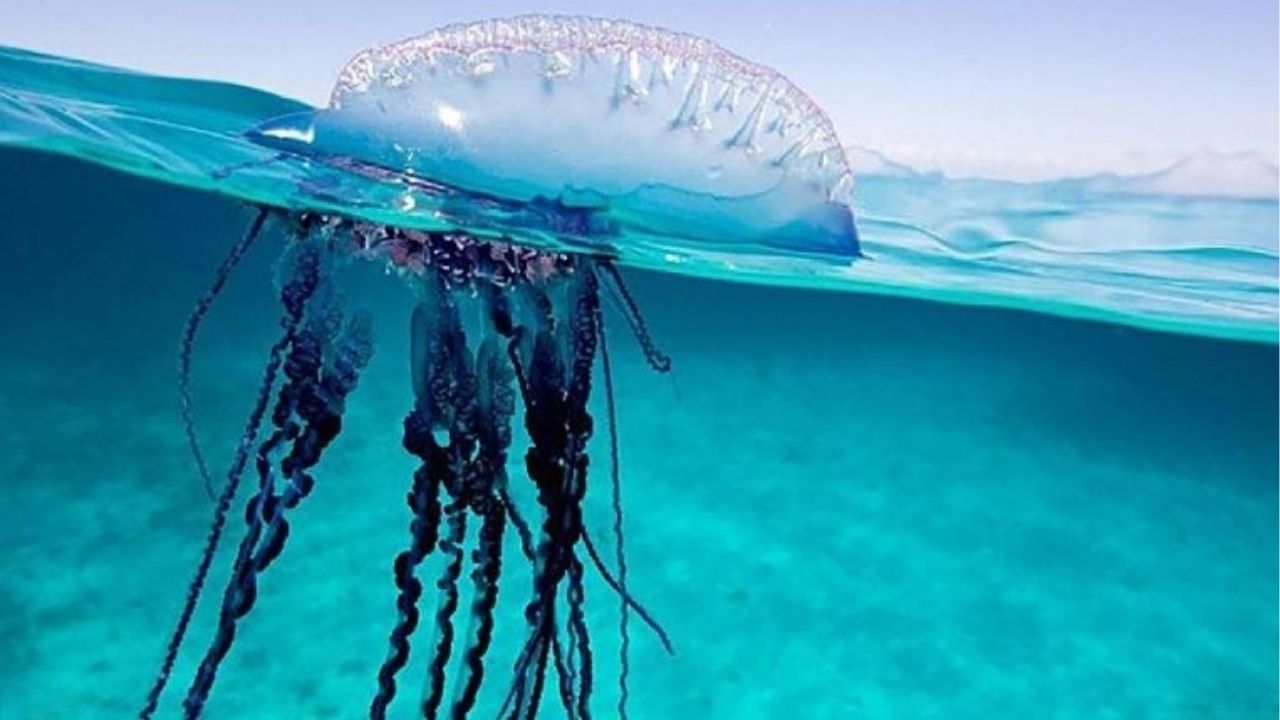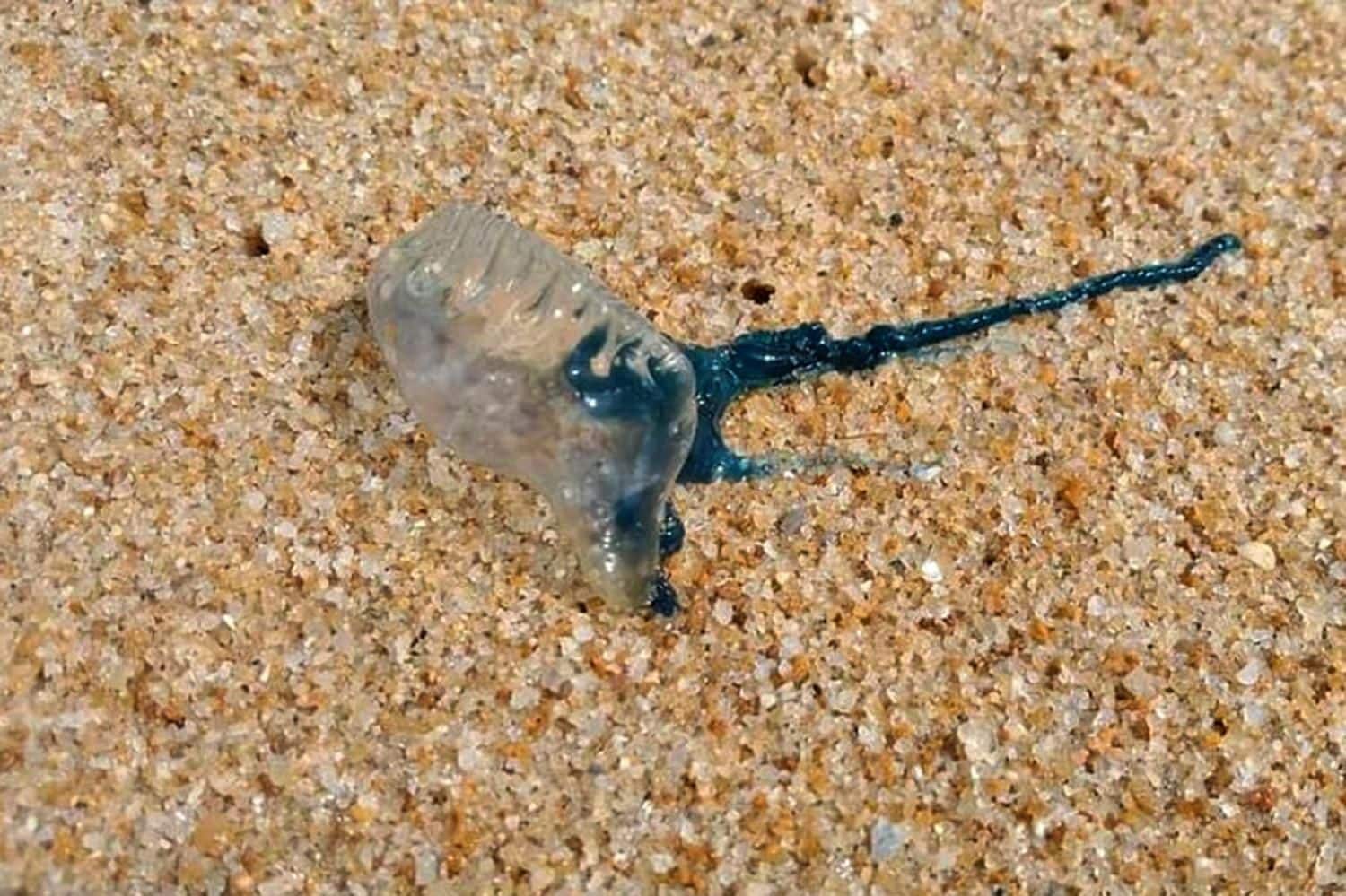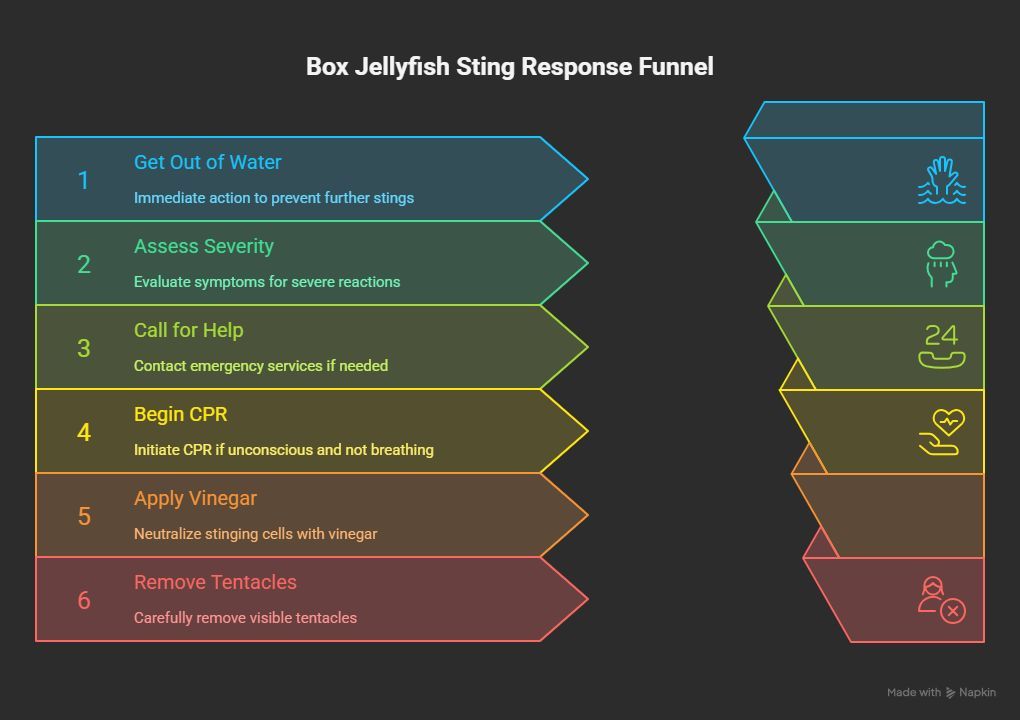Box jellyfish sting scare hits tourists at Patong Beach
Emergency teams urge caution as swimmers suffer painful stings

Lifeguards on a popular Phuket beach have reported a surge in jellyfish stings affecting tourists, with several victims requiring urgent hospital care.
The incidents, which have involved the notoriously venomous box jellyfish, have left beachgoers with burning skin, rashes and in some cases, serious allergic responses.
Lifeguards confirmed that the stings occurred both near shore and in deeper water. Some swimmers were unaware they’d been stung until symptoms appeared, as box jellyfish are nearly invisible in the water. Detached tentacles floating in the sea also pose a hidden hazard.
“Most people just feel a burn at first, but for others it quickly turns serious,” said a lifeguard from Patong Municipality.
“We treat the stings immediately with vinegar to stop the venom from spreading, but some patients had to be taken to the hospital.”

Box jellyfish possess cube-shaped, transparent bodies with long tentacles containing thousands of stinging cells that release venom on contact. While most jellyfish stings cause pain and inflammation, box jellyfish venom can be deadly within minutes, especially for those with allergies.


Particular concern has been raised over the Irukandji jellyfish, whose stings often start mildly but can escalate to life-threatening symptoms, reported Bangkok Post.
Beach officials are increasing patrols and monitoring conditions to ensure tourist safety, as the busy High Season approaches. Visitors are urged to check beach warning flags and follow lifeguard instructions.
In similar news, tourists visiting Phuket’s Kata Noi Beach are warned to admire from a distance after a number of venomous sea creatures, including the infamous Portuguese man o’ war, were found washed up along the shoreline.
The Department of Marine and Coastal Resources (DMCR) issued the warning following reports from lifeguards and a coastal monitoring team who raised red flags on July 15. Marine inspectors later confirmed the presence of several dangerous species. Among them were two to three Portuguese man o’ war—not true jellyfish, but siphonophores with long, venomous tentacles capable of delivering painful stings.
Latest Thailand News
Follow The Thaiger on Google News:


























